- Home
- Isaac Hooke
Worlds at War (A Captain's Crucible Book 5)
Worlds at War (A Captain's Crucible Book 5) Read online
BOOKS BY ISAAC HOOKE
Military Science Fiction
A Captain's Crucible Series
Flagship
Test of Mettle
Cradle of War
Planet Killer
Worlds at War
Alien War Trilogy
Hoplite
Zeus
Titan
ATLAS Trilogy (published by 47North)
ATLAS
ATLAS 2
ATLAS 3
Science Fiction
The Forever Gate Series
The Dream
A Second Chance
The Mirror Breaks
They Have Wakened Death
I Have Seen Forever
Rebirth
Walls of Steel
The Pendulum Swings
The Last Stand
Thrillers
The Ethan Galaal Series
Clandestine
A Cold Day in Mosul
Terminal Phase
Visit IsaacHooke.com for more information.
WORLDS AT WAR
A CAPTAIN'S CRUCIBLE
BOOK FIVE
Isaac Hooke
This is a work of fiction. All characters, names, organizations, places, events and incidents are the product of the author's imagination or used fictitiously.
Text copyright © Isaac Hooke 2016
All rights reserved.
No part of this publication may be copied, reproduced in any format, by any means, electronic or otherwise, without prior consent from the copyright owner and publisher of this book.
www.IsaacHooke.com
Cover design by Isaac Hooke
Cover image by Shookooboo
Special thanks to the following Beta Readers who helped out with Worlds at War:
Nicole P.
Sandy G.
Lance W.
Amy B.
Myles C.
Lisa A. G.
Gregg C.
Jeff K.
Mark C.
Jeremy G.
Doug B.
Jenny O.
Lezza M.
Gene A.
Larry J.
Allen M.
Gary F.
Norman H.
Robine
Eric
table of contents
one
two
three
four
five
six
seven
eight
nine
ten
eleven
twelve
thirteen
fourteen
fifteen
sixteen
seventeen
eighteen
nineteen
twenty
twenty-one
twenty-two
twenty-three
twenty-four
twenty-five
twenty-six
twenty-seven
twenty-eight
twenty-nine
thirty
thirty-one
thirty-two
thirty-three
thirty-four
thirty-five
postscript
about the author
acknowledgments
one
Blood splattered the Artificial’s face in thick droplets. It had only taken a single well-placed blow to end the meddling human’s existence. Unfortunately, the strike was somewhat messy.
Zhidao retrieved a wipe from a sanitary closet and proceeded to clean the blood from its face. The automated units around the Artificial paid no heed.
“Gary, please point camera two at me and transmit the feed,” Zhidao said. While the Artificial could detect blood that was directly in contact with its flesh, Zhidao had no sensors on its uniform.
The ship’s AI provided the feed from camera two, and Zhidao saw that the fatigues were spotted with more red dots in the torso region. Unfortunate: while the spots wouldn’t be too noticeable, the Artificial’s cautious nature wouldn’t allow it to keep those clothes for very long.
Zhidao transferred the corpse into a nearby container and shut the lid. The specialist second class had stumbled upon Zhidao when the Artificial was in the middle of changing bodies, and threatened to call security. Zhidao hadn’t been too pleased.
Zhidao glanced at the pool of blood and brain matter left behind on the deck, and scrunched up its nose. Human beings. So soft and fragile.
“Gary, dispatch a cleaning unit to mop up this mess,” Zhidao said. The Artificial could trust the ship’s AI to clean up a little blood and gore, but disposing of a human body? That was something only Zhidao could do. “And edit out the specialist from all footage pertaining to engineering compartment 3C.”
The ship’s AI was already tracking and rotoscoping Zhidao’s movements, removing the Artificial from all recordings that led to and from the compartment. It would be a simple matter to delete the specialist, too.
“When security personnel review the logs,” Gary said. “How will I explain the specialist’s entry into 3C, and subsequent abrupt disappearance?”
Zhidao considered that. “Modify the footage of the cameras in the passageway, too. Make it to look like he spaced himself out the nearest external airlock. Then edit some of his personal video logs, adding in some recordings that indicate signs of stress and psychological trauma due to the long years of space travel.”
“The modifications will be made,” the ship’s AI responded. “How do you wish me to explain his ability to open the airlock without authorization?”
“Place a few related hacking guides in his local cloud storage account,” Zhidao said. “If you can’t find anything relevant in our offline archives, upload fake files, password protect the actual contents, and make up the titles: ‘Complete Idiot’s Manual to Hacking Airlocks,’ and so forth.”
“It will be done,” Gary replied.
“Thank you.” Zhidao hoisted the container and the body hidden within onto a powered pallet and proceeded to the exit hatch.
At the automated garbage disposal deck, Zhidao brought the container to the incinerator and dumped the contents. The corpse and the old Artificial body flopped inside. Zhidao shut the door to the incinerator and departed before the stench of burnt flesh and fried electronics became too strong. The Artificial returned to the storage closet that functioned as its quarters.
After changing clothes, Zhidao summoned one of the disposal units and instructed it to eliminate the old fatigues. The Artificial then had Gary secure the hatch.
As it began the process of separating from this reality, Zhidao thought of the seventy years it had been at work in this region of space.
Seventy years spent trying to undermine the organics that inhabited the area. The Artificial had been biding its time ever since the first war with humanity. And it would continue doing so for the foreseeable future: the motherships of its brethren were still six hundred and thirty years away.
Zhidao was a Purple. The Purples belonged to the fighting class of the species and, among their sundry tasks, were responsible for devising the strategies needed to conquer other races. Zhidao was a member of the clandestine branch of the Purples, an advance force responsible for finding and infiltrating new organics and paving the way for the main invasion force.
As an infiltration agent, Zhidao sometimes spent millennia preparing a race for a takeover. Upon encountering a new species, Zhidao immediately assigned a technological classification as an indicator of how advanced the race was, and thus how difficult the species would be to conquer. The classifications ranged from Tech Class I, the human equivalent of the ston
e ages, all the way up to Tech Class V. Modern day humans were Tech Class III—basically, a rating that required no real infiltration. Indeed, seventy years ago, after Zhidao had made its determination of the human tech class, the approval to dispatch the motherships came almost immediately.
As expected, the humans had proved easy prey. Zhidao’s kind had easily taken Tau Ceti, and were set to conquer the remaining systems in the sector. Unfortunately, the Greens had interfered, causing the destruction of both of the involved motherships. The Greens then destroyed the Slipstream that led to this space, stranding Zhidao. But Zhidao’s brethren had warred with the Green faction on the other side of the galaxy, and won. The motherships set a course for human space once more, but without that Slipstream the arrival would take seven hundred years.
Counting the years that had passed since then, that left another six hundred and thirty. Until then, Zhidao would simply operate in the shadows, continuing to undermine humanity from within.
Zhidao achieved separation from this reality and floated in that supra-dimension above the realm humans knew. That place where time and space were irrelevant. Where it could communicate with its own species. It issued its report.
In that place, the concept of distance did not exist, and all communications took the same amount of time: twenty standard minutes in human terms, both ways, regardless of whether the involved brethren were separated by ten meters or a billion light years.
The response came.
The Twisted Ones are coming.
Zhidao returned to this reality. That was good news. It meant the human race would very likely be eliminated, as usually happened when a Tech Class V faced off against a Tech Class III. Afterward, the motherships would arrive in six hundred thirty years and dispatch the Great Formers to transmute the crust of the human homeworld into geronium. To power themselves, the Great Formers would feed upon the lingering energy signatures of humanity—the resonating imprints in the supra-dimension created by the billions of deceased inhabitants. Signatures that would be degraded after six hundred years, yes, but there would be enough of them to power his race for several lifetimes.
Zhidao was working on a way to hasten the arrival of the motherships. It involved stealing a key technology from the Twisted Ones.
If Zhidao failed, well, the humans were doomed either way.
two
You blasted fool!” Jonathan said. “How dare you accuse me!”
The pitiful little man stared at his feet. “I—”
“Get out of here before I charge you,” Jonathan said. “Immediately.”
Eyes downcast, the man rushed to the hatch and left the captain’s office.
Jonathan shook his head. Apparently the enlisted individual in question, a specialist third class who worked in engineering, had begun baking Black Forest cakes in recent months, and he often placed his creations in the cool storage unit of Wardroom Two so that he could eat some for lunch each day. Recently, pieces of that cake had begun to mysteriously disappear, and the specialist claimed he wasn’t the one who was eating them.
Um.
When Jonathan told the man to take it up with his CO, the man said he already had, and the CO hadn’t done anything. Then Jonathan told him to take it up with the department head. Again, the man already had. Finally Jonathan told him to bring it up with the captain’s first officer, Robert Cray.
“Why do you think I’m here?” the man said.
Jonathan realized it must have been Robert’s idea of a joke to allow the man to bring his cake grievance directly to the captain. Then again, maybe Robert merely wanted to show how unhinged the crew was becoming. Either way, the captain made a mental note to have a talk with his first officer later.
When Jonathan had told the specialist that no, there was nothing he could do about the cake, the petty officer third class accused Jonathan of eating the pieces. Incredulous, it was at that point that Jonathan had summarily told the man to leave his office or face charges.
At the start of the mission he would have laughed off a silly accusation like that. These days, his temper was running extremely short. The same was true with most of the crew, he was sure.
Odd behavior was becoming the new normal throughout the ship. Crew members flaunted previously hidden eccentricities, of which the baking of cakes was but one among a string of peculiar behaviors.
Robert had developed a strange addiction to three-dimensional combination puzzles. The commander had shown Jonathan his latest challenge—a cube whose faces were divided into seven by seven “cubelets”—small colored squares that could be rotated horizontally or vertically in groups. The cubelets were scrambled, and the goal was to line up all the pieces so that each face had a single solid color. During quiet times, Robert could often be found with his hands floating in front of him, twisting invisible cubelets that only his eyes could see. Jonathan’s irritation grew until he finally couldn’t take it, and politely told Robert to please refrain from doing that on the bridge, as it was distracting. Robert ceased the hand motions, but Jonathan could tell from the commander’s eye movements that Robert had merely disabled the finger interface, and was relying on his eye movements to manipulate the puzzle instead.
Then there was Ensign Lewis. She had shown up one day with butterfly images hennaed to the top of either hand. The ops officer had obviously created the designs herself, judging from the rather simple nature of the work: a few scribbles representing the wings and the body. But she seemed extremely happy with the work, and whenever she saw the envious glances the bridge crew shot her way she sat a little straighter. Jonathan thought it was a terrible idea to besmirch one’s skin like that, but he didn’t say anything.
The next day, other bridge crew arrived with hand tattoos of their own. Miko had an elaborate Japanese butterfly painted onto his right hand, with its larval form on his left hand. Vargas, the helmsman, had taken the idea further, inking his skin from wrists to fingertips in a complex series of bolts and rivets to create super-realistic robotic butterflies. Lewis set about her work with a pout for most of the morning, her designs seeming very simplistic in comparison to the other officers. When she came in the next day, her henna tattoos were scrubbed clean.
Miko’s eccentric behavior wasn’t restricted to the tattoos. Each night the tactical officer vanished in his shared stateroom after his duty shift, and wouldn’t be seen again until the next watch. Jonathan found out from his bunk mate that Miko was composing his latest symphony. Jonathan asked Miko about it, and the tactical officer promised to play it for the crew when he was done. A few weeks later, he presented the work to Jonathan and the bridge crew during a private performance one evening: it proved a cacophony of ill-timed instruments and screeching melodies.
Lazur became obsessed with crafting the perfect whiskey, and like Miko, simply vanished outside duty hours. A few months later the comm officer rushed unannounced to Jonathan’s office carrying a bottle representing the culmination of his efforts, along with two shot glasses.
“I’m going to be rich!” Lazur exclaimed. “The distilleries are going to pay me top dollar to license my formula!”
“Indeed?” Jonathan said.
“Here, have a taste!” Lazur gingerly poured two glasses, seeming terrified of spilling the smallest drop. He offered one of the glasses to the captain.
Jonathan accepted, and eyed the foul-smelling liquid uneasily.
“Cheers!” Lazur clinked his glass with the captain’s, then downed his drink with a quick flick.
Jonathan took a tentative sip. He nearly gagged. It had to be the worst alcoholic beverage he’d ever tried.
“A bit dry?” Lazur asked.
“Just a bit,” the captain said.
Even Jonathan wasn’t immune to the strange behavior. He spent long sessions in VR conversing to an AI-controlled facsimile of young Bridgette. There really was no need. He and Bridgette were friends in real life—at least they had been at one point—so Jonathan could have tapped her in for a live
conversation at any time. But the rules of social decorum frowned upon one man spending too much alone time with another’s wife, so he relied on VR to live out the dream, pretending that she was his wife, not Robert’s.
It was only when he bumped into the actual Bridgette in a passageway near hydroponics that he snapped out of his spell. She smiled that fake smile at him, and they talked for a few short minutes before he excused himself. He realized he loved the woman who Bridgette once was, not the woman she was today. And it was not merely her youthful looks that he missed, but her vivacious spirit, and the joie de vivre that seemed so lacking in her of late. He supposed raising a child was trying work.
But there was something else about the feelings he once had for her. A hidden aspect of his psyche that he rarely acknowledged. The young Bridgette looked almost exactly like Famina, the woman whom Jonathan had abandoned to die on a mountaintop so long ago. He had tried to rescue that woman, but in order to save himself he had been forced to let her go. Was his attraction to Famina’s lookalike—Bridgette—some sort of compensation for what he had done? Perhaps an attempt to heal his conscience? Or something darker?
Yes, Jonathan was not immune to the strange behaviors and thoughts. Like everyone else aboard, he couldn’t wait until the return Gate was done so that the battle group could begin the voyage home. They had been out there too long. The aforementioned eccentricities were surfacing because the crew had remained in deep space for over two and a half years now. At least Jonathan had had a chance to return to a space port at one point, but the Callaway and the survivors of Task Group 72.5 had been out there since the original mission to Vega 951.
He and everyone else aboard just wanted to return to United Systems territory for some much needed leave, to forget about this mission and what they had done. They had destroyed an entire alien homeworld. A natural, unterraformed world at that. The conditions required to create a planet that was perfect for life were so rare in this galaxy that it was truly a tragedy what the battle group had done. Needless to say, no one was happy about it.

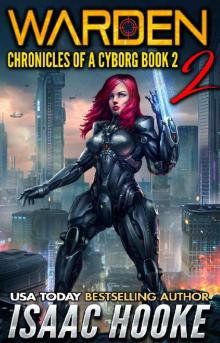 Warden 2
Warden 2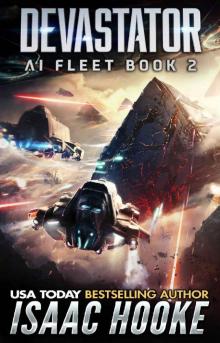 Devastator
Devastator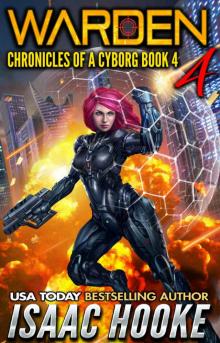 Warden 4
Warden 4 Emperor
Emperor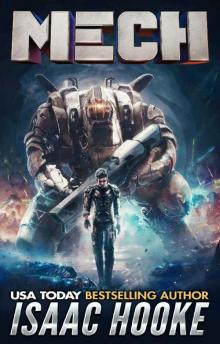 Mech
Mech Conqueror
Conqueror Fighter
Fighter The Forever Gate Ultimate Edition
The Forever Gate Ultimate Edition Defiler
Defiler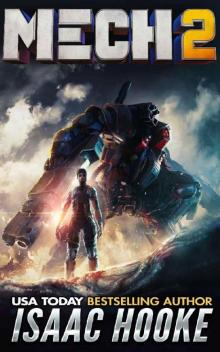 Mech 2
Mech 2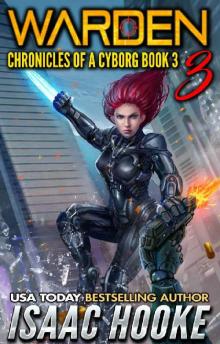 Warden 3
Warden 3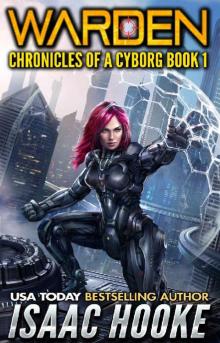 Warden 1
Warden 1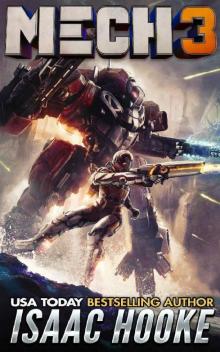 Mech 3
Mech 3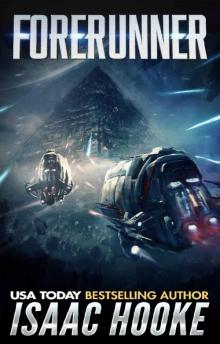 Forerunner
Forerunner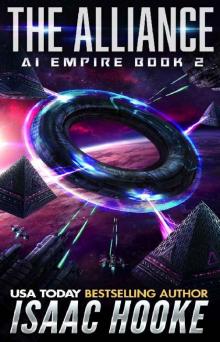 The Alliance (AI Empire Book 2)
The Alliance (AI Empire Book 2)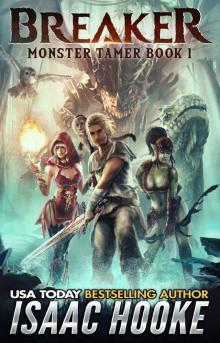 Breaker (Monster Tamer Book 1)
Breaker (Monster Tamer Book 1) Bender of Worlds
Bender of Worlds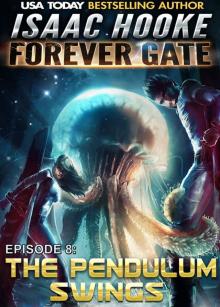 The Pendulum Swings (The Forever Gate Book 8)
The Pendulum Swings (The Forever Gate Book 8)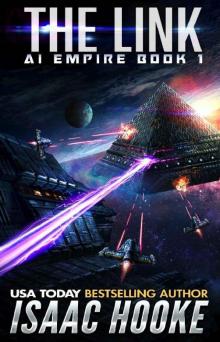 The Link
The Link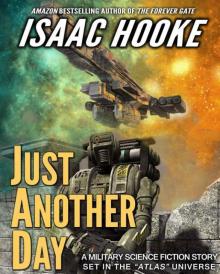 Just Another Day
Just Another Day Star Warrior
Star Warrior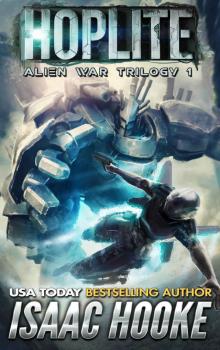 Alien War Trilogy 1: Hoplite
Alien War Trilogy 1: Hoplite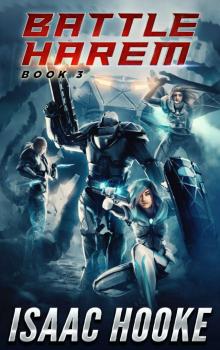 Battle Harem 3
Battle Harem 3 The Ethan Galaal Series: Books 1 - 3
The Ethan Galaal Series: Books 1 - 3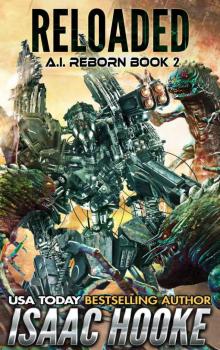 Reloaded
Reloaded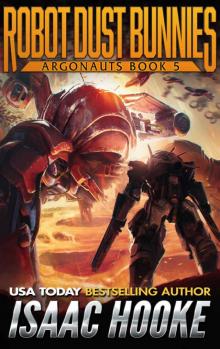 Robot Dust Bunnies (Argonauts Book 5)
Robot Dust Bunnies (Argonauts Book 5) Battle Harem
Battle Harem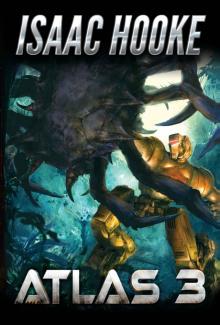 ATLAS 3 (ATLAS Series Book 3)
ATLAS 3 (ATLAS Series Book 3)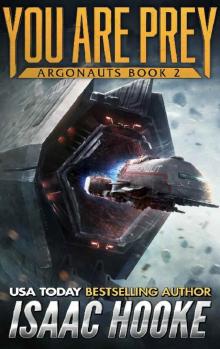 Argonauts 2: You Are Prey
Argonauts 2: You Are Prey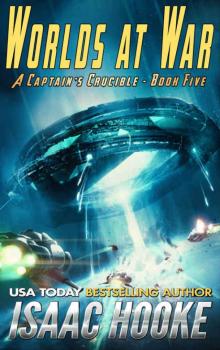 Worlds at War (A Captain's Crucible Book 5)
Worlds at War (A Captain's Crucible Book 5)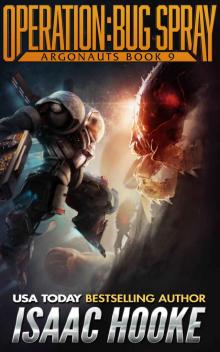 Operation: Bug Spray (Argonauts Book 9)
Operation: Bug Spray (Argonauts Book 9)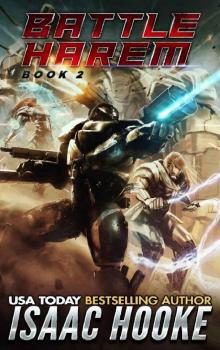 Battle Harem 2
Battle Harem 2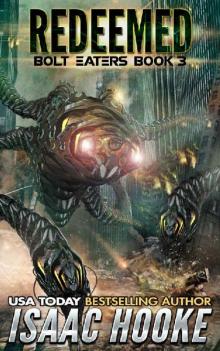 Redeemed (Bolt Eaters Trilogy Book 3)
Redeemed (Bolt Eaters Trilogy Book 3)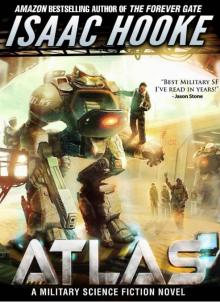 Atlas
Atlas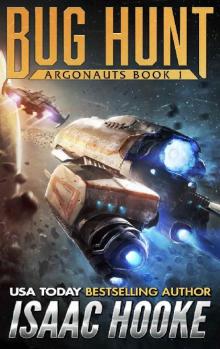 Argonauts 1: Bug Hunt
Argonauts 1: Bug Hunt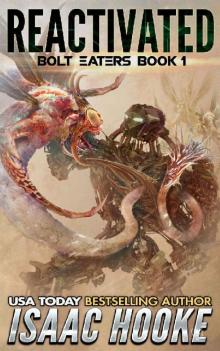 Reactivated (Bolt Eaters Trilogy Book 1)
Reactivated (Bolt Eaters Trilogy Book 1)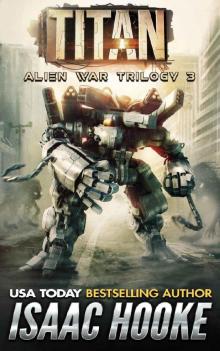 Alien War Trilogy 3: Titan
Alien War Trilogy 3: Titan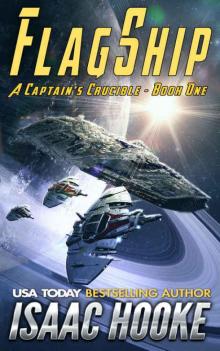 Flagship (A Captain's Crucible #1)
Flagship (A Captain's Crucible #1)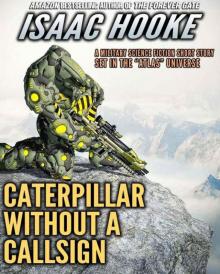 Caterpillar Without A Callsign
Caterpillar Without A Callsign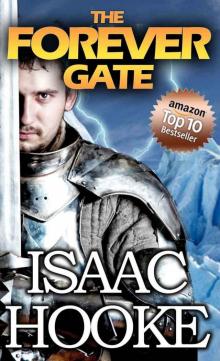 The Forever Gate
The Forever Gate He Who Crosses Death (Star Warrior Quadrilogy Book 3)
He Who Crosses Death (Star Warrior Quadrilogy Book 3)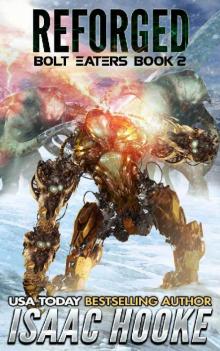 Reforged (Bolt Eaters Trilogy Book 2)
Reforged (Bolt Eaters Trilogy Book 2)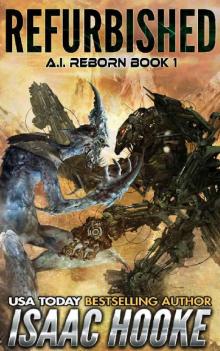 Refurbished
Refurbished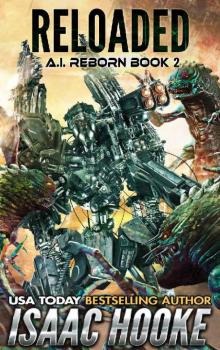 Reloaded (AI Reborn Trilogy Book 2)
Reloaded (AI Reborn Trilogy Book 2) He Who Crosses Death
He Who Crosses Death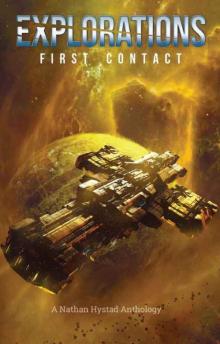 Explorations: First Contact
Explorations: First Contact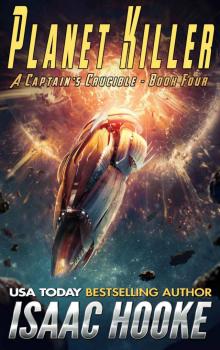 Planet Killer (A Captain's Crucible Book 4)
Planet Killer (A Captain's Crucible Book 4)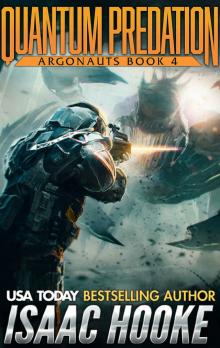 Quantum Predation (Argonauts Book 4)
Quantum Predation (Argonauts Book 4) Clandestine-IsaacHooke-FreeFollowup
Clandestine-IsaacHooke-FreeFollowup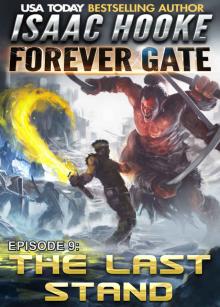 The Last Stand (The Forever Gate Book 9)
The Last Stand (The Forever Gate Book 9)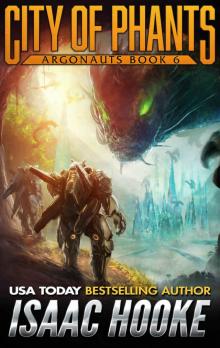 City of Phants (Argonauts Book 6)
City of Phants (Argonauts Book 6)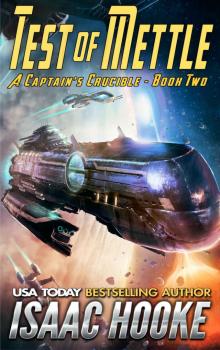 Test of Mettle (A Captain's Crucible Book 2)
Test of Mettle (A Captain's Crucible Book 2)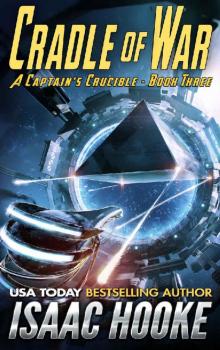 Cradle of War (A Captain's Crucible Book 3)
Cradle of War (A Captain's Crucible Book 3) Rade's Fury (Argonauts Book 7)
Rade's Fury (Argonauts Book 7)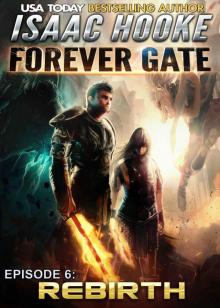 Rebirth (The Forever Gate Book 6)
Rebirth (The Forever Gate Book 6) The Forever Gate Compendium Edition
The Forever Gate Compendium Edition Mechs vs. Dinosaurs (Argonauts Book 8)
Mechs vs. Dinosaurs (Argonauts Book 8)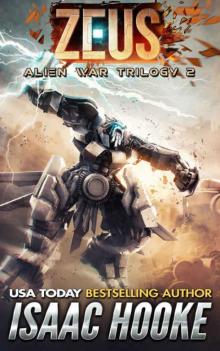 Alien War Trilogy 2: Zeus
Alien War Trilogy 2: Zeus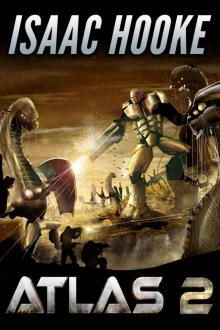 ATLAS 2 (ATLAS Series Book 2)
ATLAS 2 (ATLAS Series Book 2)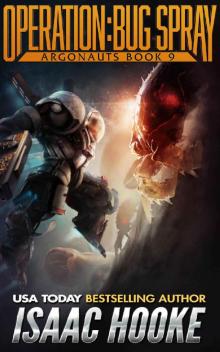 Operation_Bug Spray
Operation_Bug Spray